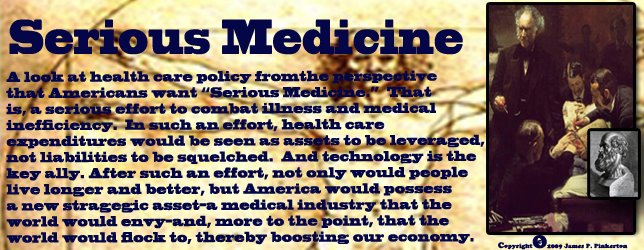
The Health Central Network, a website devoted to health and wellness concerns, features a subsidiary site,
MyBreastCancerNetwork.com, hosted by
P.J. Hamel, herself a breast-cancer survivor.
A look at the comments shows considerable skepticism, even hostility, to President
Barack Obama's health care plan, which is perceived by all these commenters as ushering in rationing and scarcity.
And unfairness. In particular, commenters flagged Obama's
admission during last week's "town hall" that he would be willing "top up" coverage for his own family--that is, go beyond the government ration.
Obama can afford to, of course. But right now, these breast cancer survivors, and their loved ones--and those who might fall victim to breast cancer in the future--have a bleak road ahead of them. Why? Because all the signals coming out of the Obama administration suggest that there will be less money, not more, for health. (Of course, it's not clear that Republicans would want to spend more, and that's the puzzling paradox. Why is it that both parties seem determined to spend less, when the American people want to spend more? And so for now, it's the Democrats who are making these decisions, and so they, and their plan, are the natural focus.)
Moreover, it's worth noting that breast-cancer activists are matched in their enthusiasm by activists for 100 other illnesses, and then another 100, and then another 100. Easily 25 million people are part of a disease-group network. So why don't they have a proper voice on national policy?





